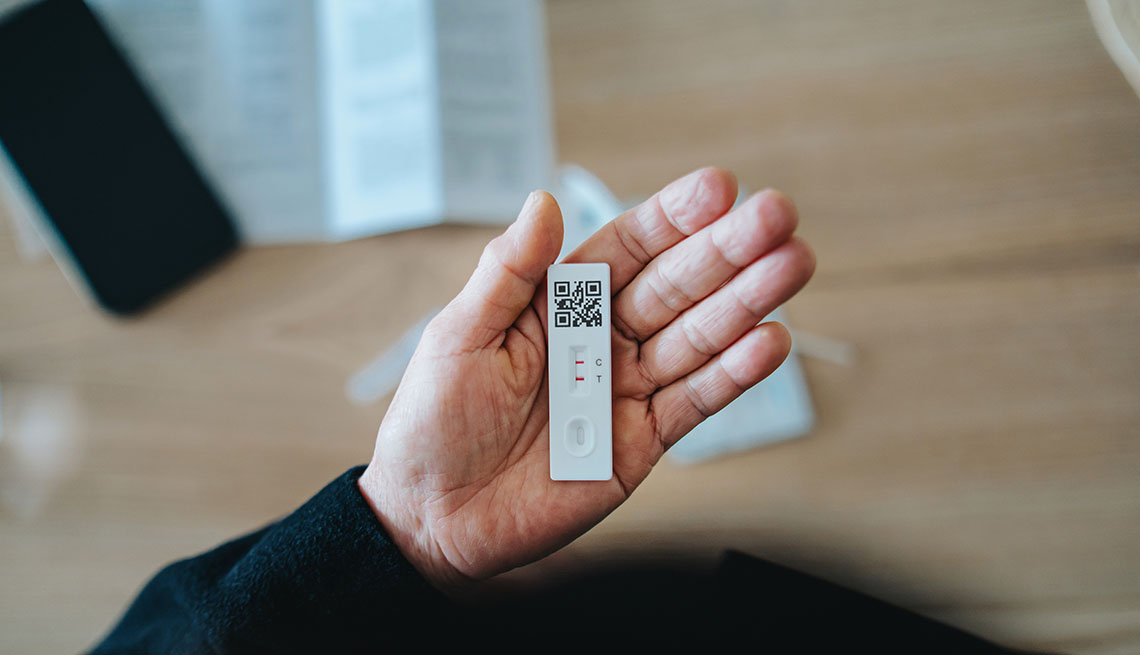
Can You Get COVID More Than Once?
- Select a language for the TTS:
- UK English Female
- UK English Male
- US English Female
- US English Male
- Australian Female
- Australian Male
- Language selected: (auto detect) - EN
Play all audios:

That said, older adults, immunocompromised individuals and people with underlying conditions that can complicate a coronavirus infection “can still have serious disease” even if they’ve had
COVID-19 before, Schaffner says, “because those people don’t respond optimally with their immune systems.” Research is underway to learn whether certain people are more at risk for
reinfection. So far, emerging data suggest that individuals who are vaccinated against SARS-CoV-2 and have had COVID-19 are better protected against reinfection than those with natural
immunity or vaccination-derived immunity alone. Experts suspect that this so-called hybrid immunity generates a “broader spectrum of antibody response and a broader spectrum of immunity,”
leading to a “more potent immune response,” says Alessandro Sette, a professor at La Jolla Institute for Immunology. The CDC recommends that people who have had COVID-19 still get vaccinated
for this “added protection.” And with BA.5 driving up new cases of COVID-19, as well as hospitalizations from the illness, health officials are urging adults 50 and older to get their
second booster shot, if they haven’t already. Another reason to get vaccinated even if you’ve had COVID-19: Data indicate that the rates of long COVID in vaccinated individuals who get a
breakthrough infection “are roughly half of what they are in those who are unvaccinated,” says Peter Marks, M.D., director of the Food and Drug Administration (FDA) Center for Biologics
Evaluation and Research. A new CDC report reveals that long COVID can affect about 1 in 5 COVID-19 survivors ages 18 to 64; 1 in 4 adults 65 and older are affected by new or lingering
symptoms after a SARS-CoV-2 infection. UPDATED VACCINES COULD CURB TRANSMISSION Given the likelihood that COVID-19 is sticking around and the realization that infection-preventing
immunity generated by the virus and the vaccines wanes, periodic revaccination (like the annual flu shot) may be necessary as we learn how to best live with the virus, Schaffner says. “And
maybe we will have to create an updated COVID vaccine the way we create an updated influenza vaccine on an annual basis,” he adds. COVID-19 vaccine makers are working on a new generation of
their products, health officials have confirmed. The hope is that advancements in vaccine technologies — be it a nasal vaccine or a formula that targets more than one variant — could provide
even greater protection against infection and reinfection. In the meantime, there are steps you can take to reduce your risk of coming down with COVID once, twice or multiple times. These
are the same preventive measures that experts have been recommending all along: Stick to well-ventilated spaces, wear a high-quality mask in crowded indoor settings, keep a safe distance
from others, and pay attention to the level of transmission in your community. “If there is a surge, the likelihood of being reinfected is much higher than if there is no virus circulating
or a lesser amount of virus circulating,” Sette says. Also, stay up to date with the COVID-19 vaccines, Adalja urges, and “have a plan for rapidly testing yourself and getting linked to
treatments like monoclonal antibodies or antivirals if you test positive.” _Editor's Note: This story, originally published June 1, 2022, has been updated to reflect new information._
